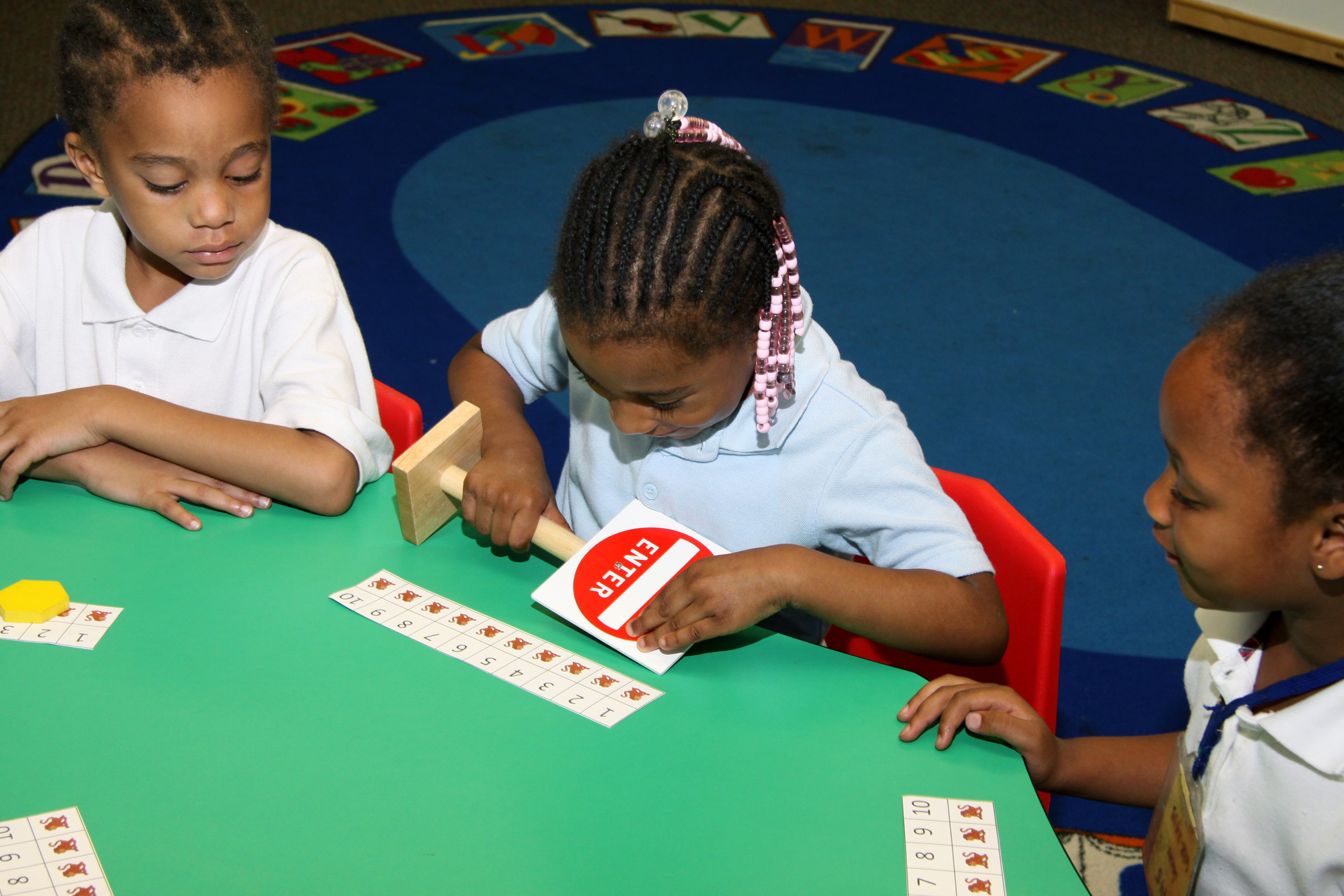Young children's knowledge of math is a more significant predictor of later academic success than are early reading skills, yet many preschool teachers rarely teach lessons on math or science, according to Mable Kinzie, a University of Virginia associate professor of instructional science and technology in the Curry School of Education.
Kinzie and an interdisciplinary team of education specialists and researchers in U.Va.'s Center for Advanced Study of Teaching and Learning set out to address this problem.
After developing new early childhood mathematics and science curricula, they will now run a randomized control trial in 140 classrooms across several metropolitan areas, to see how the year-long curricula and accompanying implementation support system impact children's knowledge and skills and the instructional interaction between children and teachers in the classroom. The study is being funded by a $3.5 million grant from the U.S. Department of Education's Institute of Education Sciences.
The MyTeachingPartner-Mathematics/Science curricula were developed and field-tested over the past three years by Kinzie and her team. Their design was based on research in early childhood learning and includes a built-in implementation support system for preschool teachers.
"Young children's informal mathematical and scientific understandings develop through play and engaging with the world, and they have the capacity for complex and abstract thought," Kinzie said.
These early skills are the foundation for later skill development, particularly in math and science, she said. "Unfortunately, opportunities for learning are often missed in early childhood classrooms. Very little instructional time is spent on math and science in the first place. When these topics are introduced, they are covered in cursory ways or in discrete units with no linkage to broader concepts and skills."
Preschool teachers often struggle to implement math and science curricula, she explained, likely due to a lack of content knowledge and confidence. Thus, an important feature of MyTeachingPartner-Mathematics/Science is its portfolio of implementation supports for teachers, which include more than 130 two- to three-minute video demonstrations of high-quality teaching using the curricula the way they were intended.
Also included are teaching tips emphasizing good pedagogy, how children learn and content knowledge, along with suggested instructional modifications for children who need more challenge or would benefit from more instructional support, and recommendations for extending children's learning across the classroom day and at home (via "do-it-at-home" newsletters for parents). A Quality Teaching Video Library containing hundreds of additional examples of high-quality preschool teaching rounds out the online teacher support system.
The new study will evaluate 4-year-old children and their teachers in 140 classrooms, drawn from a mix of public, Head Start and private early childhood centers, with teachers participating for two consecutive years.
The research team will also include U.Va. CASTL researchers Jessica Whittaker and Amanda Williford, and Robert C. Pianta, dean of the Curry School. They will consider the impacts of the preschool curricula on children\'s mathematic and scientific knowledge and skills, as well as children's interactions with teachers and their classroom engagement and teachers' instructional practices with the curricula.
The math curriculum focuses on concepts and skills in number sense, operations, geometry and measurement, while the science curriculum addresses inquiry skills and key concepts in life, earth and physical science, Kinzie said. The curricula are designed so that two math and two science activities are to be implemented every week along with one science center every month throughout the year.
Early in its development, MyTeachingPartner-Mathematics/Science received the 2010 Outstanding Practice Award from the Association for Educational Communications and Technology.
When the study has been completed, the team hopes to implement the curricula and teacher support system more broadly in early childhood programs across the country.
Media Contact
Article Information
July 10, 2012
/content/uva-researchers-will-test-effectiveness-pre-k-math-science-curricula

